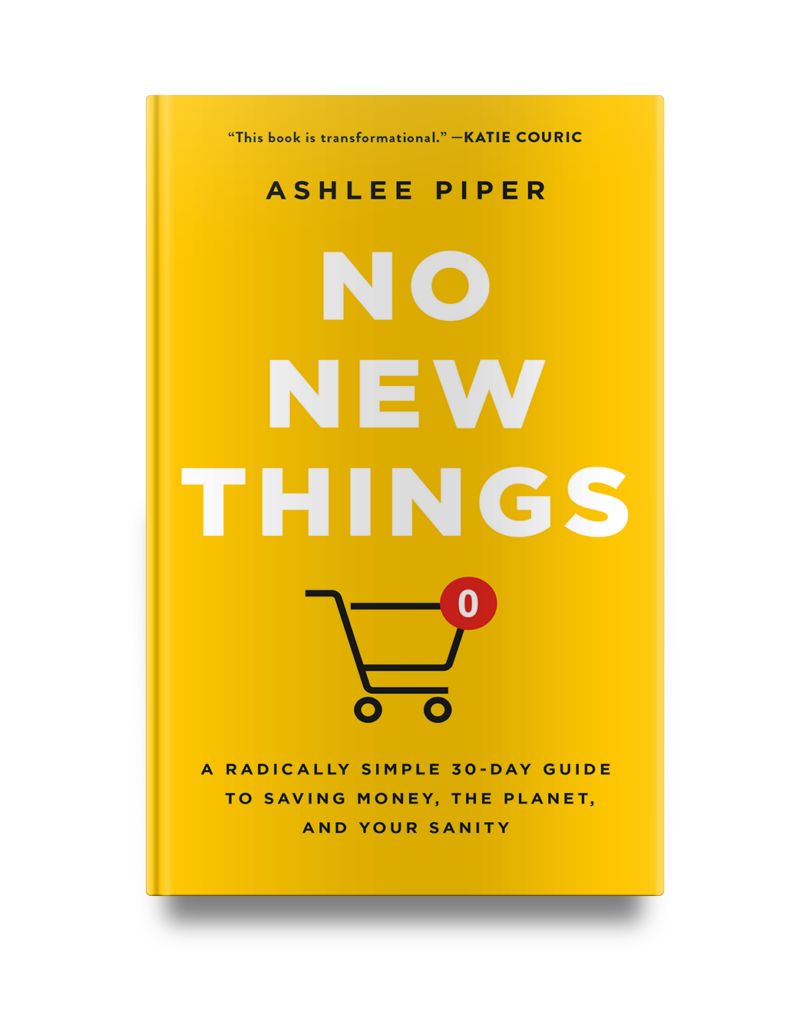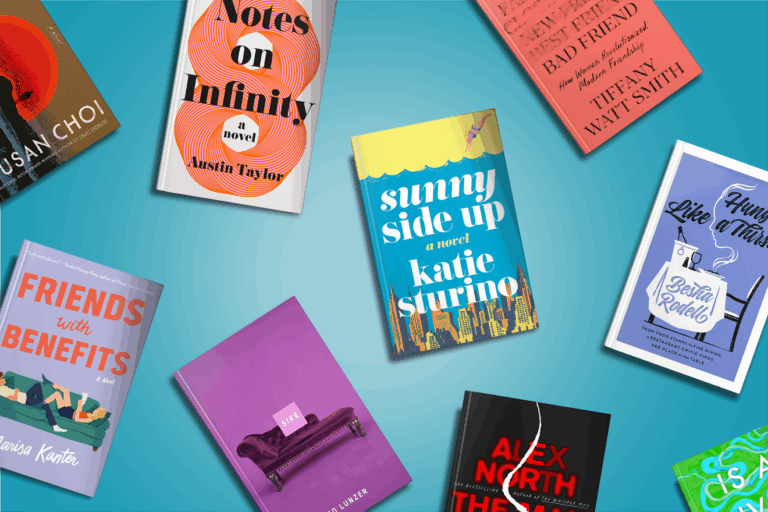We live in an era of “more is more.” From perpetual online shopping bargains to the endless scroll of targeted ads and sponsored content, we’re constantly being sold stuff, right along with the idea that we can never have enough.
It doesn’t have to be this way. Living sustainably and minimizing your environmental impact while simplifying your material surroundings is a worthy goal — with a profoundly rewarding payoff. And though the transition to more sustainable living may sound daunting at first, the right help is out there.
In her new book No New Things: A Radically Simple 30-Day Guide to Saving Money, the Planet, and Your Sanity, award-winning sustainability expert Ashlee Piper shows you how break free from wasteful habits, establish a more manageable relationship with your consumerist impulses, and ultimately achieve a more peaceful point of view.
Piper’s new book is a wellspring of sustainability tips and no-nonsense guidance to get you out of your consumerist rut and on a more viable track. One particularly handy strategy you can implement today? Piper’s five-step approach to living with less and finding alternative ways to get the things you need — what the author calls the SUPER System:
S: Shop secondhand (thrifting, consignment, online resale)
For most items, especially clothing, secondhand stores are a great way to get what you need in an affordable and eco-friendly manner. You never know what you’ll find at your local thrift. Check out consignment shops for a slightly more curated selection that may offer better-quality items, or hop online to search resale platforms like Poshmark, ThredUp, Depop, eBay, and Facebook Marketplace for specific things.
U: Use, upcycle, or reimagine stuff you already have
Surprise: You might already have what you need! As Piper notes: “The muscle memory toward buying new before exploring our own stuff is usually just that: a force of consumerist habit.” To break free from that habit, we have to familiarize ourselves with the things we own and practice viewing our stuff with a little imagination. For instance, if you need cleaning rags and have a torn T-shirt headed for the trash… then you already have cleaning rags.
P: Pay nothing by using previously established store credit or memberships, acquiring items for zero cash via free groups, by finding them on a stoop or at the curb, or getting them from your networks.
It’s happened to all of us at one point or another: We receive store credit then promptly forget it exists, or we sign up for a membership but rarely use the benefits. Just as Piper encourages you to familiarize yourself with the things you own, you should also take stock of the savings already at your disposal. Cash in that store credit and those membership perks to save yourself money, for starters. Also keep an eye out for freebies left on the curb or find ways to make a trade or pick up giveaways. Piper recommends checking out groups in your area for folks who are also on a mission to buy less. Visit the Buy Nothing Project’s website to locate groups near you.
E: Experience, donation, and monetary, non-thing gifts (used mostly for gifts for others)
When it comes to gifting, things may feel like a requirement. As Piper notes: “Gifting has become so fraught with superficial expectations…but the impetus to give should indeed come from…the hope that what you provide will be helpful, healing, or happy-making for the receiver.” Rather than presenting more stuff, consider gifting experiences like concerts or events, donations in the recipient’s name, or other non-things you can purchase, like gym memberships or a service subscription. Not only does this minimize physical waste buildup, it also lets your loved one enjoy a one-of-a-kind experience!
R: Rent, borrow, or share!
Just because you need or want something, that doesn’t mean you have to own it. You can rent a paddleboard for the day, borrow your buddy’s ski jacket, or hit up your sharing community for an extra set of dishes to fill out your holiday table. No need to acquire more stuff — the items you need are likely already available to you!
Whether you have an unhealthy relationship to consumerism or are just looking to regain greater control of your time and money, No New Things has the tips you need to kick off a more conscientious lifestyle. With Piper’s expert guidance and sustainable living tips, we can all be on our way to a less wasteful, more fulfilling lifestyle free of overconsumption.




